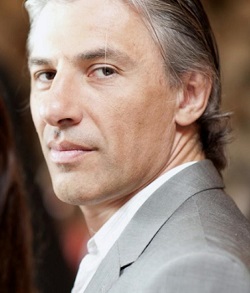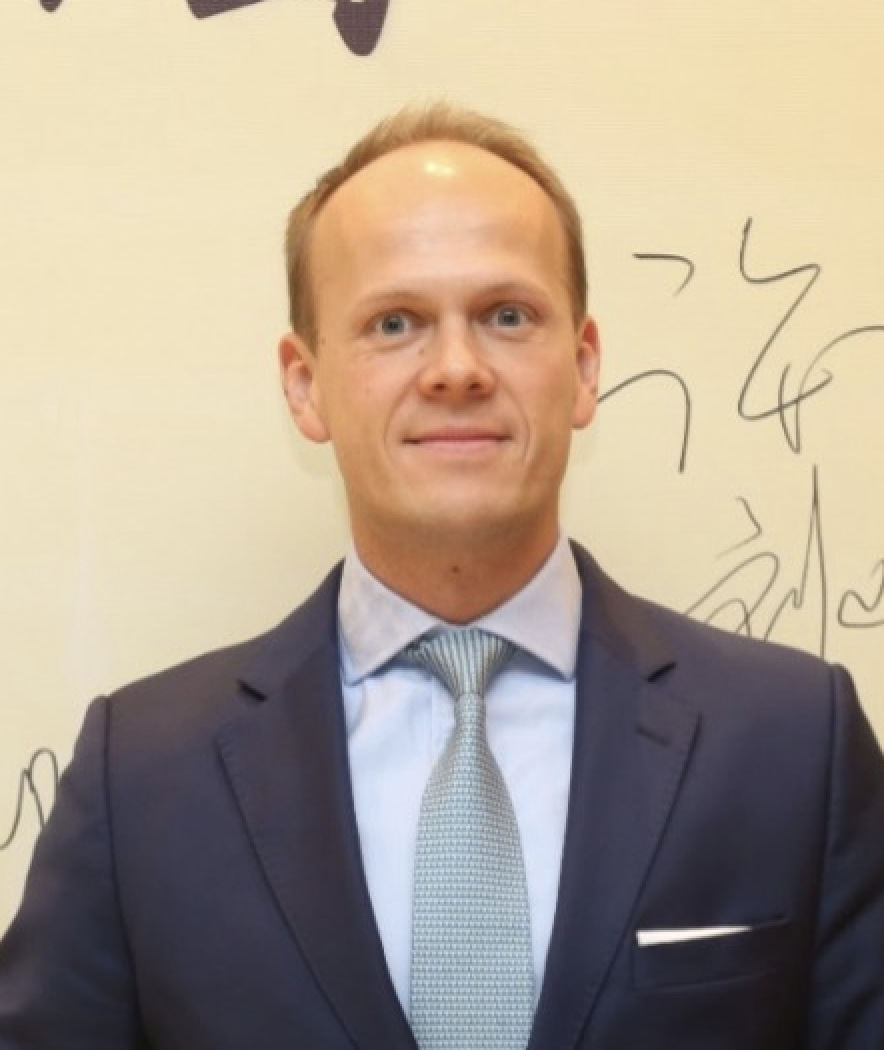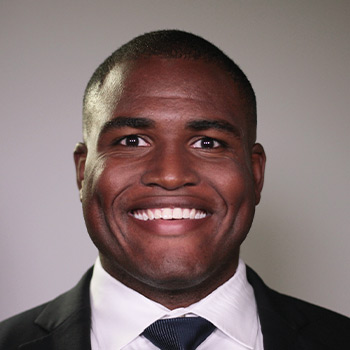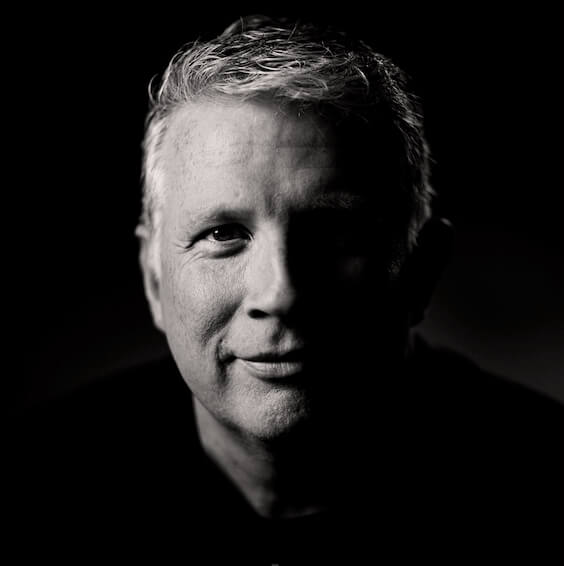Transcripts

Erik: Joining me now is HonTe Investments, founder and chief investment officer, Alex Gurevich. Alex has a brand new book out and no surprise considering it's Alex, it shot straight up. Right now at number six on the Wall Street Journal's Best Seller list. So you're not gonna want to miss this new book, which is called "The Trades of March 2020 - A Shield Against Uncertainty." We'll talk about the book a little bit later on in the interview.
But Alex, it's great to have you back. It's been too long as you know, because I know you listen to the show yourself frequently. I've been asking almost everybody to talk to me about inflation and its relationship to the bond market and interest rates. And as we're speaking this week, I don't know if we hit 2% yet, but I was looking at one spot 98 on the 10-year yield earlier this morning. So if we're not already there, we're getting awfully close. What's going on? Is the bond bull market over does this mean that we're seeing the beginning of secular inflation that's going to collapse the bond market or is this something completely different?
Alex: Well, first of all, it is good to be back. I'm thankful to you for having me over at the podcast again. It's always fun and good conversation. Now, of course, this is the topic du jour. The dramatic shift in central bank policies that occurred over the last few months which led to dramatic raising an expectation of short term interest rates in most developed market countries. It also, as you mentioned, even longer dated yields are beginning to back a little bit even though most of the curve trading was flattening. And I think that is very important to notice over the last few months. As for my view on the bond bull market. When they came out of 2020, I wrote a lot about the enormous amount of money printing which was at that time combined with the Fed focusing on just US central bank policy, combined with the Fed being very adamant that they will wait, that they will let inflation run hot in this post COVID, post pandemic transition period and see what happens. And that kind of created some concerns for me that the yield curve might be much steeper and that the yields could go higher. Even though I was not necessarily thinking that that was going to happen but I had a concern. I would say that this concern is alleviated. I'm no longer concerned about inflation and I'm no longer concerned about end of the bond bull market because historical pattern. The pattern of how markets have traded is telling me otherwise.

Erik: Joining me now is Ronnie Stoeferle, managing partner and fund manager for Incrementum. He prepared a terrific slide deck for us. Listeners, you'll find the download link in your research roundup email. Now if you don't have a research roundup email, it means you haven't registered yet at macrovoices.com. Just go to the homepage at macrovoices.com. Look for the red button that says looking for the downloads. Ronnie, it's great to have you back on the show. I'm looking forward to diving into this precious metals focused slide deck. But boy, what a week in in the markets. Why don't we start with the big picture? What happened? What's going on? Why the sudden return of volatility and how do you see this market environment?
Ronald: Hi, Erik. First of all, I don't know if it's if it's too late. But anyway, Happy New Year to you and all your listeners. Well, it seems that that volatility is finally back. I mean, we all knew that the market was pretty expensive. And you know, we went into the new year with the largest forward P/E discount for emerging markets relative to develop markets ever. We were trading at a 40 times Cape multiple, which is a I think Dave Rosenberg wrote it. That's a three standard deviation event that we lost had in November 2000. And we all know that the next year so 2001, the market was down 18% to everyone's surprise. And it's you know, it's not only the P/E ratio, it's also, you know, the S&Ps price to sales ratio. It is at three times! It's a price to tangible book ratio at 15 times. So the market was very, very expensive. And I think that the market participants realized after this tremendous year of 2021 where the S&P I think made 17 new all time highs with very very low volatility. It was the lowest realized volatility since 2017.
It realized, first of all that, you know, Jay Powell seems to get really serious and the three to four rate hikes plus tapering plus quantitative tightening is not really something that the market really looks forward to. So this terrible taper, this tapering on steroids. Yeah, I mean, it's something that obviously caused this major and brutal correction. But from my point of view, I'm seeing it fairly relaxed. And first of all, one of the reasons is that there was a great chart that I retweeted yesterday, it's by the guys that 314 research, it shows that if the sell off should continue, the Fed will probably stop hiking before it before it started. So history says that in 71% of all Fed hikes, they have come when the market is within 6% of its 12 month high. So I think the market now is, is already kind of discounting that the three to four rate hikes won't really happen. From my point of view, it will be a one and done. And I think, you know, coming back to the to the equity markets, I think market participants seem to forget that household ownership of equities is now at 45 trillion. That's an all time high. That's actually twice the size of the US economy and way above the historical norm, which I think is 13% or 14%.
So that means that a 20% drawdown in this cycle and you know, 20% corrections are just something normally normal usually. A 20% drawdown in this cycle will feel more like a 60% plunge. So therefore, I think that it's almost impossible for the Federal Reserve to do three or four rate hikes this year. I think they will have to do the U turn pretty soon. And this will be the point in time when they completely lose the rest of their reputation. So I think it's a highly interesting development that we're seeing at the moment. And I think that gold is perfectly reacting to this whole development. It's already kind of sniffing out that the Federal Reserve will have to reverse its course.

Erik: Joining me now is Viktor Shvets, Head of Global and Asia Pacific strategy for Macquarie. Viktor, it's great to have you back on the show. Last time we had you on, the episode was titled, The Inflation-Deflation Pendulum. And at that time, there was still a huge amount of debate, a lot of people thought there was going to be no inflation. And of course, sure enough, we've gone from a situation where everybody questioned whether there was ever going to be any inflation to a lot of people now think it's running away and it's going crazy from here. Is it still a pendulum and where are we in this story?
Viktor: Yes Erik, I still believe we are in the pendulum. I think the last time we spoke and I tend to look more at G5 inflation, which is US, UK, Eurozone, Japan and China, which is much more representative of a global inflation requirement. I think I was arguing that inflation will peak at the very end of 21, early 22 at around 4%. Now, we now have December numbers, and it actually in December was 4.5%. So did we have a much more significant surge? and the answer is yes that particularly applies to US, to a lesser extent the UK. But we did have a much much stronger sort of jump in inflation. The question, however, is why do we have inflation? I usually tell us people, were you really concerned in December 2019 that we're going to run out of people. Were you really concerned in December 2019, that suddenly we will have shortages of goods? Well, the answer is that you did not. And if you think of real global demand, it's only slightly ahead where it was at the peak of December 19. More so in the case of the US less so in other countries. But what actually happened? We had a collapse and recovery. Now that recovery mostly shifted towards goods, depending on the country, the goods demand is about 10 to 20% higher than what it was prior to COVID. So if you think about the trend line, we're about 10-20% higher. But if you look at services demand, it's about 10% lower than it was in the past. So it's not necessarily that we have explosion of demand. But rather we had a significant relocation of demand between goods as well as services. And so as a result, we suddenly start running out of truck drivers, our warehouses are bulging. Suppliers could not properly estimate what demand will be. And so they are underinvested or they go out of business or they were hoarding. And so the result was, to me that most of the inflation we have experienced, it's still the case that demand and supply curve have not moved in tandem or in unison over the last couple of years.
And so the question becomes, as we go forward, do you think that's going to happen, or that's going to get fixed? Now, if you think of most numbers, whether it's New York Fed, a global supply index, whether you look at ISM indexes globally, including US, what you started to see is some easing of pressures. around November-December. It's really picked looks like around October. Now, nobody could argue that if suddenly we have another COVID, or we have another sets of disruptions, it can get worse. But at this stage, it looks like it's starting to ease. So the question to me as we progress through 2022. Yes, G5 inflation was higher. As I said, it's I think it's going to peak around four and a half. I don't think it's going to go much higher. The core inflation is about three, I think it's going up a little bit more in the next couple of months. But beyond that, it really comes down to the fact, can we get demand and supply curves moving relatively in unison? My answer is yes. And I think the last time I spoke on your program, I was saying by the middle of 22, a lot of supply and demand issues should get much easier. And by the end of 22, we're going to get surpluses of goods rather than shortages. The only exception to that will be anything to do with digital economy. In other words, cobalt lithium, rare semiconductors. But most of the other things, I believe we're more likely to be in surplus by the end of 20 to early 23. The other big question mark, is that can you continue stimulating demand, that's when you go to fiscal and monetary policies. And my view remains the same that we picked in the fiscal support around July August of 2021. We've already been coming off for about six months, but that sort of erosion will accelerate as we go through 22 and 23. Pretty much every country wants to control their deficits wants to control their debts.
So if you think of again, G5 economies we peaked at about 11-12% fiscal deficits in 21. That's going to be down to maybe around 6% in 22 and maybe closer to five in 23. Now, that's a biggest fiscal contraction since World War Two. And unless something terrible is going to happen, I think that contraction will be a real. Nobody is going to go for primary surpluses, nobody is going to be doing crazy stuff that we used to do. But nevertheless, fiscal delta will remain very negative. And the same applies to monetary delta. Almost every central bank is now believing that they are behind the curve, which I disagree with. But nevertheless, that's what they feel and so monetary delta will be declining exactly the same time as a fiscal delta. And so without fiscal and monetary support, without really cyclical recovery, the way we had nearly 21 I think both reflation and inflation will start coming off. And so both growth and inflation at the end of 22 will be lower than at an earlier part of the year. Now how far lower? I think G5 will end up with probably around 2%, down from 4.5%. Even more inflationary countries like US and UK, probably will have inflation at least 300-400 basis points lower.
Now, how can we go wrong in this thesis? Well, a couple of things can go wrong. Number one, supply and demand curve don't move together. There are other disruptions, things happen, and you just can't get ahead of the curve just like we couldn't in 21. The other problem will be if central banks as inflation persist into early 22. Just overdue sayings in other words, they really commit a sequence of policy errors that will very quickly extinguished both growth and inflation at the same time. And the third area is really external factors. We did that we can't control things like geopolitics. Nobody is factoring in right now anything to do with Russia versus Ukraine, or South China Sea or anything else. So don't say a question, Erik, I'm stealing the pendulum. I'm basically arguing that without public sector, without strong fiscal and monetary support, disinflationary forces are stronger than inflationary. And so if you remove those props, inflation will go down, our gross will go down. And the question then becomes really whether you should start stimulating again into 23.

Erik: Joining me now is 42 Macro founder Darius Dale. Darius has prepared an outstanding chartdeck to accompany this week's interview. Registered users will find the download link in your research roundup email. If you don't have a research roundup email, it means you're not yet registered. Just go to the homepage macrovoices.com, click the red button above Darius's photo that says, looking for the downloads. I want to let our listeners know, this particular slide deck is a lot longer than we're going to have time to cover in the podcast. We're doing this intentionally because there's so much value that is contained in this particular slide deck, which I wanted our listeners to see even though we won't have time to cover all the slides in the podcast.
Now, Darius works from a systematic approach to macro investing where he tracks what growth is doing, what inflation is doing. And he kind of makes a grid that says okay, when inflation is going up and growth is going down, okay, these circumstances are going to exist. So there's four different possibilities there. Darius, most of our MacroVoices listeners already know your system, but for the benefit of newcomers, what's the best place to learn about the basics of that system before we dive into the meat of it?
Darius: Yeah, absolutely Erik. I appreciate you guys having me back on. Happy New Year and all that stuff even though Larry David tells us we can't say this past the 7th. I'm violating the rules here. But in terms of finding that presentation, we put that together on our YouTube channel, we'll make sure the link is included in this week's Research Roundup.

Erik: Joining me now is Things That Make You Go Hmmm... founder and editor Grant Williams. Grant, it's great to have you back! First interview of the new year. I want to send the way back machine all the way back 13 years ago this week, it was 2008 coming into 2009. We hadn't gotten to the final bottom in the stock market yet. You and I and a lot of other people really thought that that financial crisis was about too much debt. And we thought that the proposed remedy, which seemed to be creating more debt was not going to be sustainable. And we made a lot of arguments back then saying look, you can't just have the central bank propping up asset markets indefinitely. That's not sustainable. At least that's what I said, I don't want to put words in your mouth. I know I said it wasn't sustainable.
Gosh, it's been a dozen years Grant and they're sustaining it so far. At least, that's the way I see it. How should we think about the fact that although I still don't think it's sustainable long term and I think that they're driving us into what could be a really big inflation trap. Definitely, they could sustain things longer than I thought back 10 or 12 years ago. And it seems like in the eyes of a lot of people, but all of us skeptics got it wrong. And central bankers have proven that there really is a perpetual motion machine of finance here in the form of central bank largesse. How does this go from here? What do you think is on the horizon?
Grant: Well first of all, Happy New Year to everybody listening.
Erik: What a way to say Happy New Year! Did I just give you a great introduction or what?
Grant: It's a great question. I mean, look, you're right, I think I would bracket myself with you as saying that. If you put a gun to my head 12 years ago and said paint me a picture of life at the end of 2021 and asked me whether that was realistic, I would have said hell no. But, you know, I think the piece of the puzzle that perhaps a lot of people missed was that the market just wouldn't care about anything but liquidity. They wouldn't care about valuations, they would come to mean nothing to people, and that they would be happy to pay crazy multiples for things with either no profits or no chance of making profits for the foreseeable future. And I think that's the part that it was really hard to foresee ahead of times, because you know, that stuff has always mattered. And let's face it, regardless of any kind of suspension of that belief for the time being, we all know that it does matter.
If you're buying the shares in a company, you're buying those future cash flows, and if they're negative, at some point, that is not going to work out. Now, while the vast majority of market participants have the belief that either the Fed has their back, or there's going to be ample liquidity, low rates forever, and a bunch of people forced into putting money into the market as a place to get any kind of return that they can't get the bond market, then, you know, look, it can be sustained, and it has been sustained. The problem with that, as you've pointed out, and numerous guests on your show have pointed out is that you're just creating a bigger and bigger problem that will have to be faced on the day when all of this suddenly matters again. And, you know, it could be rising rates that make it matter, which is why the return of inflation is such a big problem. It could be some kind of collective awakening that makes people realize that they've paid the wrong price for all kinds of different things. Who knows? It could be something that none of us have thought of and generally that's the way these things tend to work out. But I agree it's amazing where we've gotten to and if you look at how we closed 2021. You know, there's this idea that markets are closing on or around the highs, it's going to make new highs.
If you look at some of the data, which is pretty extraordinary, you take away the top performing stocks from these markets, the NASDAQ for example, the average distance from the 52-week high of all stocks in the NASDAQ is 40%. 40% below the 52-week high while the index is just three and a half percent below the 52-week high. You go through all of these, you go through the S&P and the average stock is almost 12% below its 52 week high, the market closed at or within half a percent of its high. You know these are strange divergences that have been covered up by a small group of stocks which have priced in the sensitive buyers because they've been shoved into just about every ETF you can possibly think of and you know, at some point, you sound like a broken record saying this because we don't know when that point will be but financial sanity and financial gravity will return at some point. It just will be that way you cannot suspend your disbelief forever. So you know, does it happen this year? I would say we have as much chance as we do it any other January, the first trying to predict that, but this is why it's so important to understand what the return of inflation does and why it's such a dangerous phenomenon at the best of times, given the setup right now, the return of inflation creates a whole different set of problems because of this inability by central banks to raise rates by any meaningful degree to combat it. So I think this year, there's going to be a moment when the central banks are going to stare down the barrel of a gun, and have to decide what to do. And, you know, we can talk about what their options are, they're getting fewer by the week. And at some point, I suspect there's going to have to be some extraordinary monetary policy of the non-QE kind, rather, of the capital control, credit control kind which nobody wants.
MACRO VOICES is presented for informational and entertainment purposes only. The information presented in MACRO VOICES should NOT be construed as investment advice. Always consult a licensed investment professional before making important investment decisions. The opinions expressed on MACRO VOICES are those of the participants. MACRO VOICES, its producers, and hosts Erik Townsend and Patrick Ceresna shall NOT be liable for losses resulting from investment decisions based on information or viewpoints presented on MACRO VOICES.
